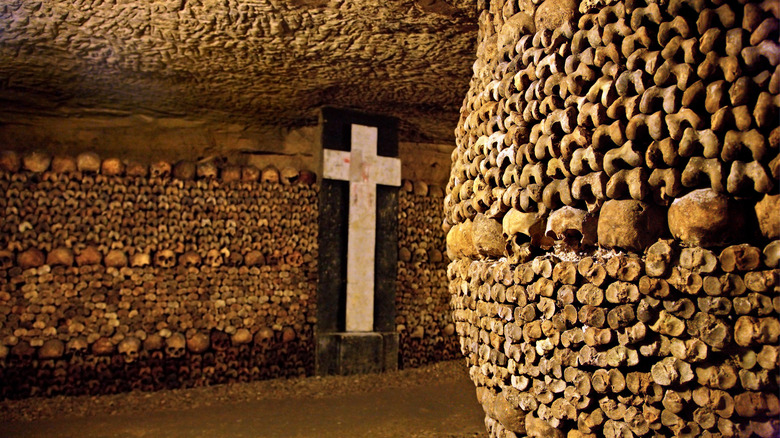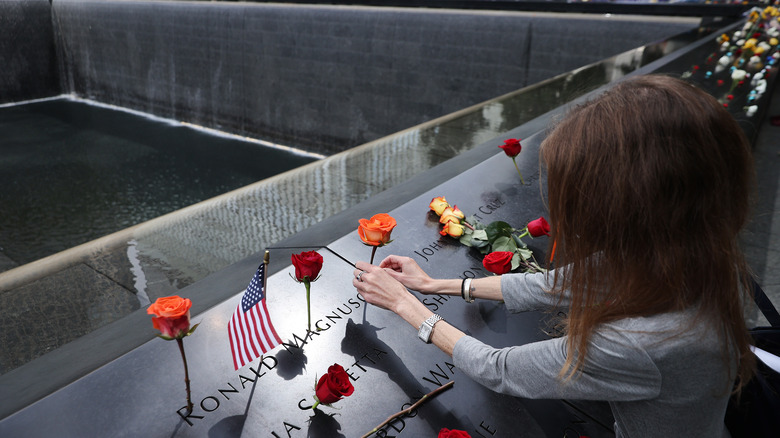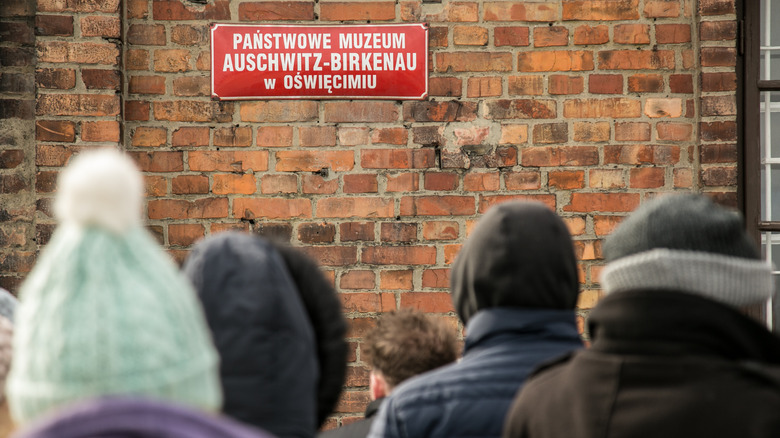What Is Dark Tourism And Why Is It So Popular?
Pompeii. Ground Zero. The Colosseum. Auschwitz. Civil War Trail. Chernobyl. If you've visited any of these places, you might be considered a "dark" tourist — not a voyeur or sadist. A dark tourist.
While "dark tourism" means different things to different people, let's define the cultural nuance as follows: Dark tourism is visiting places associated with death and human tragedy. Full stop. Some make distinctions regarding recency consideration, but even that is open to interpretation.
Of course, visiting Pompeii and Ground Zero is different, but philosophically, both sites are associated with death and human tragedy. However, the visitor's motivation to visit these particular sites will be different. Unless a visitor knew someone in 79 A.D., their visit to Pompeii will be motivated by history and education. For someone visiting New York's Ground Zero, their motivation could range from first-person personal to culturally reflective to experiential education.
But what about visiting the funeral pyres in Varanasi, India, where Hindus cremate on the banks of the Ganges? That's not history. And it's culturally sacred. And the ceremonies continue day and night. It's not always easy for a person trying to see the world — both the good and the bad — to know what's appropriate and ethical. So, first, in an attempt to further round out the definition of dark tourism, let's try to understand why dark tourism is so popular, and explore how to be a responsible dark tourist.
Reasons why dark tourism is so popular
Dark tourism could most efficiently be defined as the act of visiting places associated with death and human tragedy — and that tragedy as an incident that caused or causes shared societal grief, regardless of cultural context or causality.
So, why is dark tourism so popular? According to a 2021 study published by the International Hospitality Review, researchers described the four primary motivations of someone to visit places associated with death and tragedy as: curiosity (a need to see to believe), education, an interest in personally connecting, and the place's sheer existence as a tourist attraction.
As stated, dark tourism means different things to different people, and when tourists visit dark tourism sites such as Ground Zero, the Auschwitz-Birkenau Memorial and Museum outside of Kraków, Poland, the Cambodian Killing Fields, the catacombs in Paris, or Hiroshima, their motivations will color their perception of the experience.
If learning is your motivation to visit these places, then a guided tour is definitely recommended. It's one thing to visit a notorious site, but if your goal is to learn, then a guide can provide essential grounding context, leading to a more engaging and thought-invoking experience. If personal connection is your goal, then a tour may still be warranted. However, most sensitive sites offer audio-guides and directed self-guided tours, allowing visitors the space and privacy for personal reflection and connection.
How to be a responsible dark tourist
Dark tourism isn't necessarily a question of morality. Just because you look at scars, doesn't mean you made them or you're happy they exist. Tragic events are historical, cultural, and societal scars. Unfortunately and realistically, these scars crisscross — and continue to crisscross — our little blue orb. Seeing these scars in person doesn't make you dark, and choosing not to see them while traveling doesn't make you naïve.
However, when visiting a sensitive place or participating in a sensitive experience, it's incredibly important to be mindful of this sensitivity. This is especially true if you're not personally connected to the event. Many visitors at these sites will be. You don't want to be the person snapping selfies next to a family recalling personal tragedy or reliving traumatic events.
For your own fulfillment and for respect of others, simply listening and absorbing may be the best approach. Usually, by doing these two things, your overall decorum should be in check. Being a responsible dark tourist simply means being respectful to the place, the event, and other visitors who may've been personally affected by the place and event.


